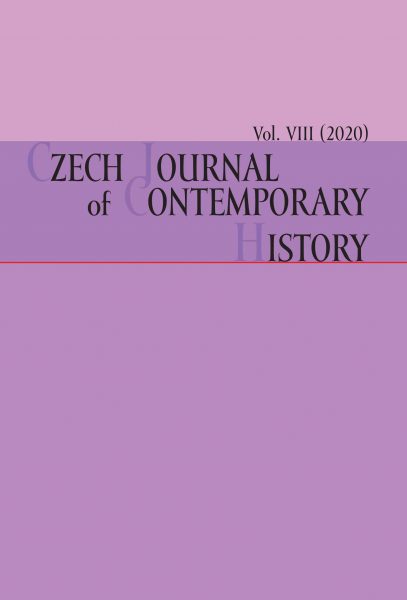The Beginnings of the Czechoslovak and Yugoslav Exile Governments in London during the Second World War. Expectations, Possibilities, and Reality
The Beginnings of the Czechoslovak and Yugoslav Exile Governments in London during the Second World War. Expectations, Possibilities, and Reality
Author(s): Milan SoviljSubject(s): Diplomatic history, Military history, Political history, Government/Political systems, International relations/trade, WW II and following years (1940 - 1949), History of Communism, Asylum, Refugees, Migration as Policy-fields
Published by: AV ČR - Akademie věd České republiky - Ústav pro soudobé dějiny
Keywords: Czechoslovakia; Yugoslavia; World War II; exile;
Summary/Abstract: In his partly comparative study, the author focuses on a specific chapter in Czechoslovak-Yugoslav relations in the 20th century, namely contacts of the exile governments of both countries after their occupation by the German army in March 1939 (remnants of Czechoslovakia) and April 1941 (Yugoslavia). Supported by document from Prague’s and Belgrade’s archives, he recalls circumstances of the German occupation of Yugoslavia and compares the formation of the Czechoslovak and Yugoslav political representations in exile, the different ways they took to London, the problems they encountered during early years in exile, and their positions in London’s exile community. The study shows how the restoration of mutual relations between the two representations was burdened by historical animosities, although Belgrade and Prague had been allies since 1919, both being members of the Little Entente; President Edvard Beneš (1884–1948), in particular, was long reproaching Yugoslav politicians for abandoning Czechoslovakia at the time of the Munich crisis in the autumn of 1938. However, some Yugoslav representatives, on the other hand, disliked the fact that the Czechoslovak government had not supported them in the conflict with Italy in 1926 and during the establishment of the king’s dictatorship three years later. Mutual relations of leading Czechoslovak and Yugoslav politicians in exile were also reflecting their respective opinions on further war developments and on relations of restored Czechoslovakia and Yugoslavia to allied powers. Both exile governments were striving for help and support of Great Britain; however, they assumed, for a variety of reasons, different attitudes to cooperation with the Soviet Union. Although the relations were gradually improving, especially since 1943, when the Yugoslav government declared that it did not acknowledge the Munich Agreement, their courses drifted apart while both were still in exile, and only Czechoslovak exile representatives returned home as winners, while their Yugoslav counterparts in London had to “beat a retreat”, yielding to Tito’s Communists, and most of them stayed in exile.
Journal: Czech Journal of Contemporary History
- Issue Year: VIII/2020
- Issue No: 8
- Page Range: 5-28
- Page Count: 24
- Language: English

